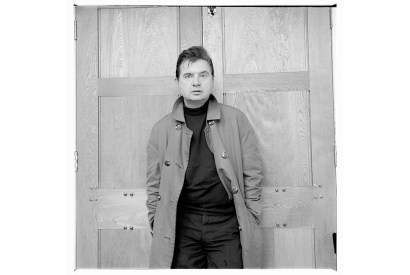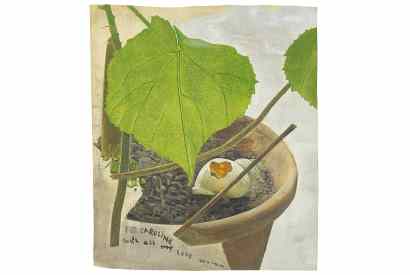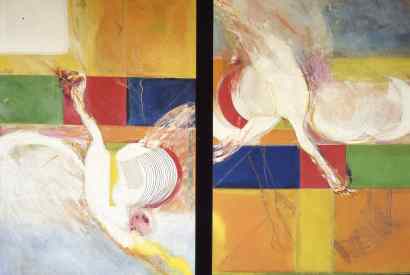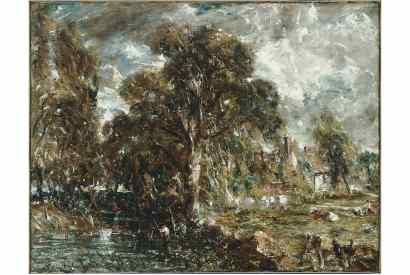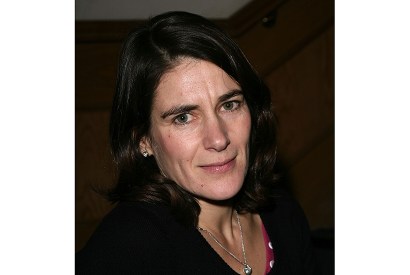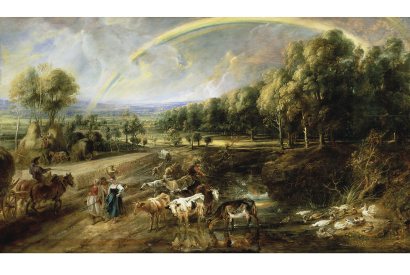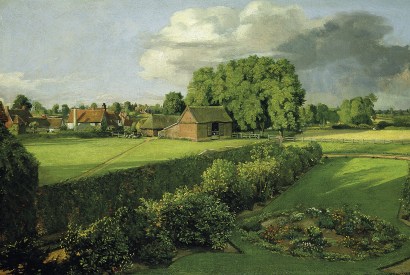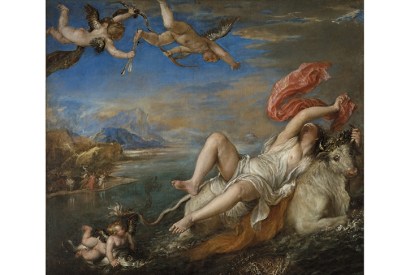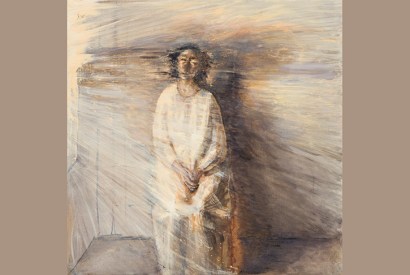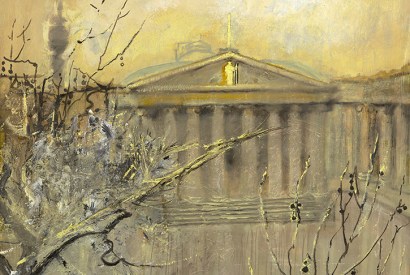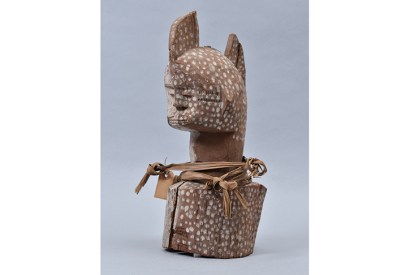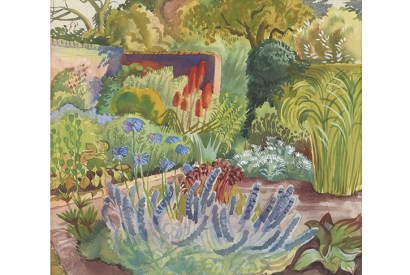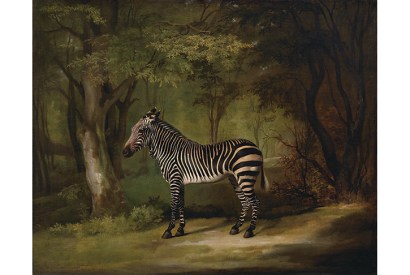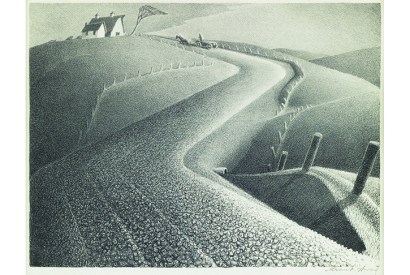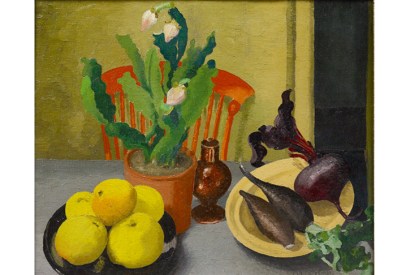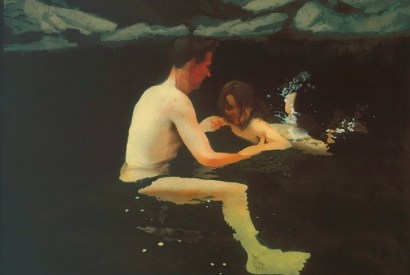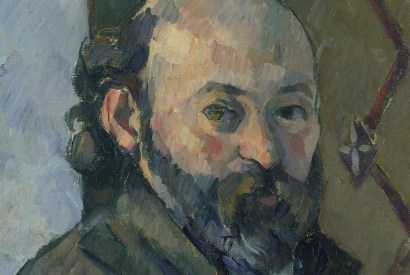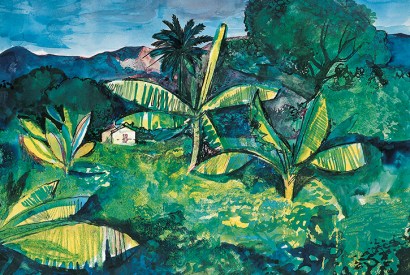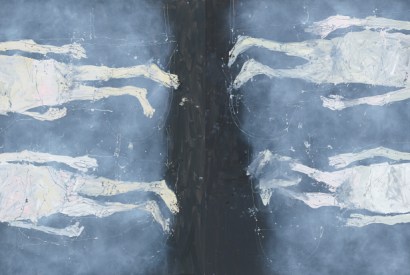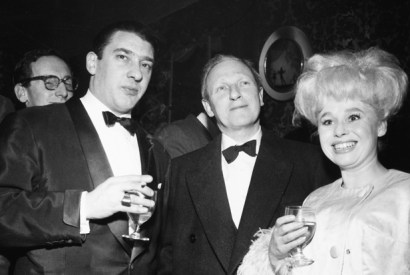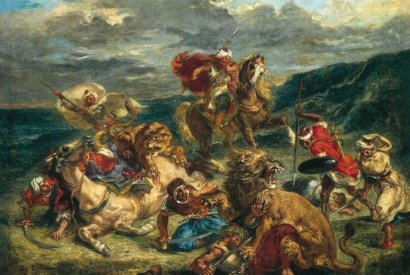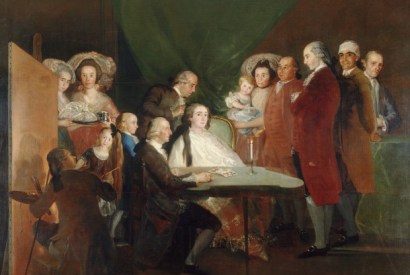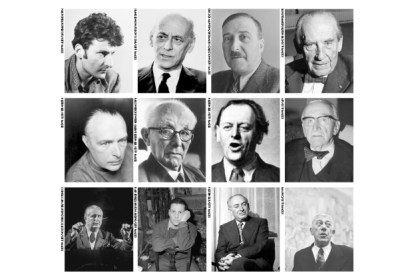Lucian Freud
The joy of hanging out with artists
Lynn Barber finds painters and sculptors easily the most congenial people to interview - despite having received a death threat from the Chapman brothers
‘There are an awful lot of my paintings I don’t like,’ admitted Francis Bacon
While waspishly dismissive of many of the 20th century’s greatest artists, Bacon was also critical of his own work, in conversation with David Sylvester
Do we need another Lucian Freud exhibition?
Do we need another Lucian Freud exhibition? After years of exposure to his paintings of naked bodies posed like casualties…
Valuable reassessment of British art: Barbican's Postwar Modern reviewed
Notoriously, the past is another country: what’s more, it’s a terrain for which the guidebooks need constantly to be rewritten.…
His final paintings are like Jackson Pollocks: RA's Late Constable reviewed
On 13 July 1815, John Constable wrote to his fiancée, Maria Bicknell, about this and that. Interspersed with a discussion…
Mothers and daughters: I Couldn’t Love You More, by Esther Freud, reviewed
A new novel by Esther Freud — her ninth — raises the perennial but always fascinating question about the use…
The joy of socially distanced gallery-going
Not long after the pubs, big galleries have all started to reopen, like flowers unfolding, one by one. The timing…
How John Constable got masterpiece after masterpiece out of a tiny corner of rural Suffolk
John Constable’s paintings of a tiny corner of rural Suffolk teach us to see the beauty on our doorstep, says Martin Gayford
To fill a major Tate show requires a huge talent. Dora Maar didn’t have that
Dora Maar first attracted the attention of Pablo Picasso while playing a rather dangerous game at the celebrated left-bank café…
Free of Lucian Freud — Celia Paul’s road to fulfilment
I was looking the other day at a video of the artist Celia Paul in conversation with the curator of…
Lucian Freud insisted a forgery could be as great as the real thing. Was he right?
Perhaps we should blame Vasari. Ever since the publication of his Lives of the Artists, and to an ever-increasing extent,…
Feasts, flowers and plein-air painting at Benton End
Cedric Morris is often referred to as an artist-plantsman, and while as a breeder of plants, most particularly of irises,…
What makes British art British?
There’s no avoiding the Britishness of British art. It hits me every time I walk outside and see dappled trees…
The joy of prints
Artists’ prints have been around for almost as long as the printed book. Indeed, they have similar origins in Gutenberg’s…
The artist more fond of flowers and vegetables than people – and who can blame him
I have occasionally mused that there is plenty of scope for a Tate East Anglia — a pendant on the…
Magnificent paintings – oddly curated: All Too Human reviewed
In the mid-1940s, Frank Auerbach remarked, the arbiters of taste had decided what was going to happen in British art:…
The most impressive array of work to be seen in London in years: Cézanne’s Portraits reviewed
The critic and painter Adrian Stokes once remarked on how fortunate Cézanne had been to be bald, ‘considering the wonderful…
A tale of two artists
Wherever one looked in the arts scene of the 1940s and ’50s, one was likely to encounter the tragicomic figure…
As he approaches 80, the German master Georg Baselitz contemplates the end
‘In many ways,’ Georg Baselitz muses, ‘I behaved against the grain of the times I grew up in.’ The era…
David Litvinoff: queeny aesthete or street-hustling procurer?
Even David Litvinoff’s surname was a concoction. It was really Levy. Wanting something ‘more romantic’, he appropriated that of his…
Galleries are getting bigger - but is there enough good art to put in them?
Martin Gayford recommends the exhibitions to see — and to avoid — over the coming year
Why did Goya’s sitters put up with his brutal honesty?
Sometimes, contrary to a widespread suspicion, critics do get it right. On 17 August, 1798 an anonymous contributor to the…
German refugees transformed British cultural life - but at a price
German-speaking refugees dragged British culture into the 20th century. But that didn’t go down well in Stepney or Stevenage, says William Cook



